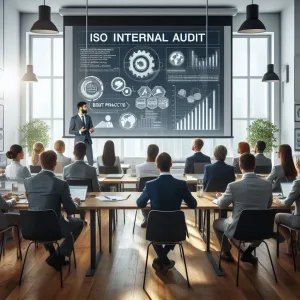Entering the field of financial auditing as a new accountant can be both exciting and daunting. For those without a CPA certification, understanding the landscape and navigating the challenges is crucial. This blog post aims to provide practical advice and best practices for non-CPA accountants conducting audits, ensuring you can deliver high-quality results while enhancing your professional skills [1].
Understanding the Limitations
As accountants new to the field of financial auditing, it’s essential to acknowledge the challenges and constraints that come with conducting audits without being a Certified Public Accountant (CPA). While non-CPA certifications can provide valuable knowledge and skills, they may limit professional opinions or certification to conduct certain types of audits [2].
One significant limitation is the scope of work. Non-CPA accountants may not be qualified to conduct high-risk or complex audits that require specialized expertise, such as financial statement audits or SOC (Service Organization Control) audits. These types of audits typically require a CPA certification and extensive experience in auditing, which may be beyond the capabilities of non-CPA accountants.
However, it’s crucial to remember that non-CPA accountants can still provide valuable insights and contribute significantly to auditing engagements. They can assist with tasks such as [3]:
- Data collection and analysis
- Reviewing internal controls
- Identifying areas for improvement
- Providing recommendations for process enhancements
Practical Steps to Overcome Limitations:
- Seek guidance: Collaborate with a certified professional who can provide oversight and expertise on complex audit matters.
- Build your skills: Pursue additional education and training in auditing and accounting principles to enhance your knowledge and capabilities.
- Focus on specific areas: Identify your strengths and focus on tasks that align with your certifications and experience, such as data analysis or internal control reviews.
- Continuously learn: Stay up-to-date with industry developments, standards, and best practices by attending conferences, webinars, or online courses.
Staying Current with Industry Developments
As an accountant specializing in internal audit, it’s essential to stay current with industry developments to maintain the highest level of competence and accuracy in your work. While certifications like the CPA are valuable assets for accountants, they’re not a requirement for conducting audits. However, that doesn’t mean you can afford to be complacent in your professional development [4].
One effective way to stay current is by attending industry conferences, workshops, or online courses. These events provide a platform for learning from experts in the field and networking with peers who share similar interests. You’ll gain insights into new methodologies, best practices, and emerging trends that can help you enhance your skills and stay ahead of the curve.
Collaboration with Certified Professionals
As an accountant without a CPA certification entering the field of internal audit, it’s essential to recognize that you don’t need to be a certified expert in every area. Collaborating with certified professionals can not only enhance the quality of your audits but also provide valuable opportunities for growth and development [5].
Practical Tips for Collaboration:
- Clearly define your roles and responsibilities with certified colleagues.
- Establish regular check-ins to discuss progress and address any concerns.
- Encourage a culture of transparency and collaboration within your team.
- Seek feedback from certified colleagues on areas where you can improve.
Documentation and Record-Keeping
As a non-CPA accountant entering the field of financial auditing, you understand the importance of thorough documentation and record-keeping. Effective documentation not only ensures that audit results are accurate and reliable but also supports the credibility of your findings.
Best Practices for Documentation:
- Use a standardized template: Develop a template that outlines key information, such as date, time, location, and description of procedures performed.
- Document all testing results: Record test results, including any discrepancies or exceptions, to support your conclusions.
- Include observations and notes: Document any notable observations or findings during the audit, as well as reasons for recommendations.
Risk Assessment and Focus Areas
Risk assessment is a critical component of the auditing process. It involves identifying potential risks that could impact an organization’s financial statements or internal controls. To conduct a thorough risk assessment, you should start by:
Practical Tips for Conducting Risk Assessments:
- Start by identifying the most critical areas of risk that require immediate attention.
- Use a risk assessment matrix to categorize risks based on their level of severity and likelihood.
- Consult with management and other stakeholders regularly to stay informed about changes or developments that may impact your audit efforts.
Communication with Stakeholders
Effective communication with stakeholders is a crucial aspect of internal audit success. As a non-CPA accountant, your work involves not only identifying areas for improvement but also communicating your findings, recommendations, and conclusions in a transparent and actionable manner.
Best Practices for Effective Communication:
- Be approachable and available to answer questions and address concerns.
- Use clear and concise language when presenting audit results.
- Provide a written summary of key findings and recommendations.
- Offer actionable steps for stakeholders to implement corrective actions.
Key Takeaways
- Non-CPA accountants can still provide valuable contributions to audits by focusing on their strengths and collaborating with certified professionals.
- Ongoing education and staying current with industry developments are essential for maintaining audit accuracy and relevance.
- Effective documentation and communication are critical for building trust and ensuring successful audit outcomes.
FAQ
1. Can non-CPA accountants conduct audits?
Yes, non-CPA accountants can conduct certain types of audits, but they face limitations in providing opinions on financial statements and conducting high-risk audits. Collaboration with CPAs is often beneficial.
2. What certifications can enhance my skills as a non-CPA accountant?
Certifications like Certified Internal Auditor (CIA) or Certified Information Systems Auditor (CISA) can enhance your skills and knowledge in specific areas of auditing.
3. How can I stay updated on industry changes?
Attend industry conferences, workshops, and online courses to stay informed about new accounting standards, regulations, and best practices.
Conclusion
In conclusion, while non-CPA accountants may face limitations in conducting audits, they can still provide valuable contributions to auditing engagements. By acknowledging these challenges and constraints, new accountants entering the field of financial auditing can better understand their role and responsibilities and take steps to overcome these limitations through collaboration, education, and continuous learning.
Find out more about Shaun Stoltz https://www.shaunstoltz.com/about/
This post was written by an AI and reviewed/edited by a human.



